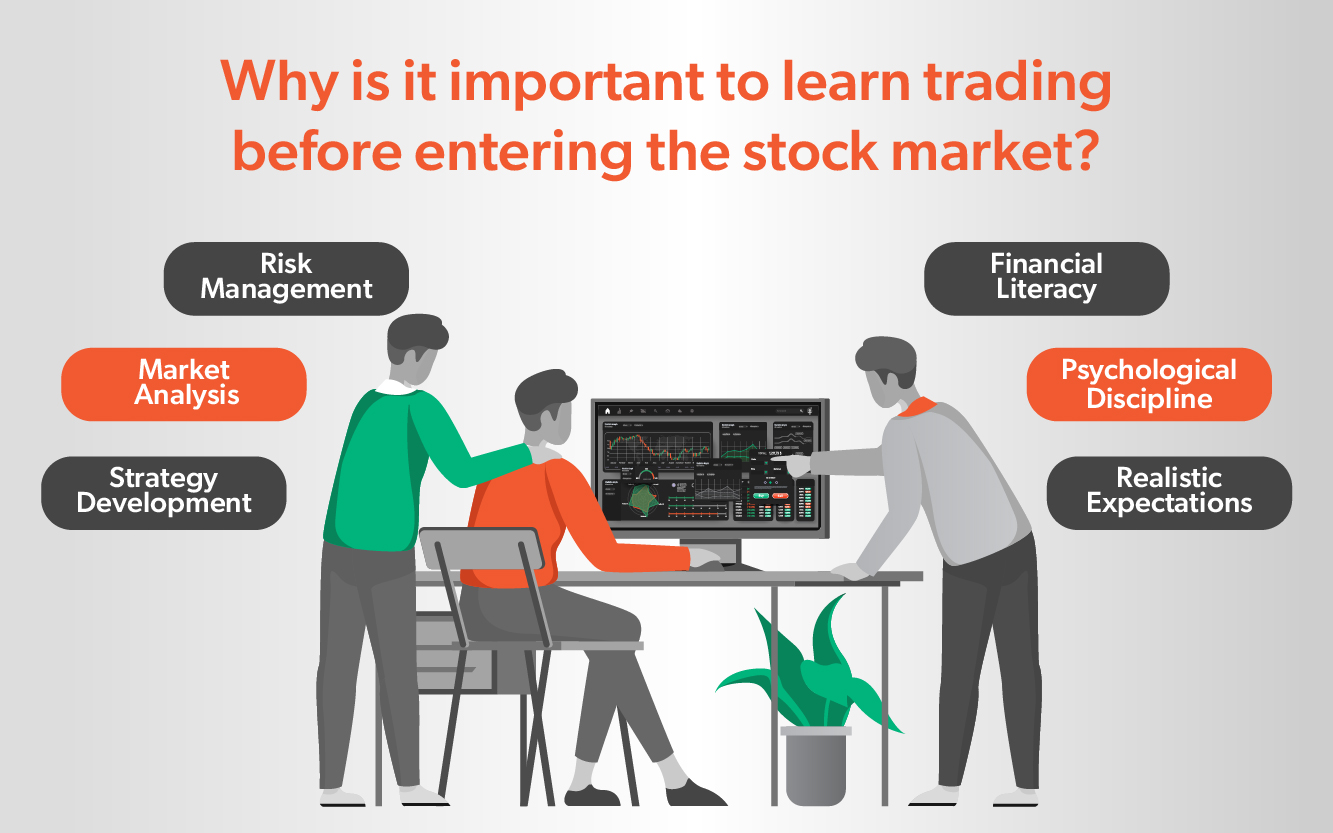Understanding the Basics: Foundation for Success
Mastering the stock market is a journey that demands time, effort, and dedication. It begins with understanding the fundamentals of stock trading. At its core, the stock market is a marketplace where investors buy and sell shares of publicly traded companies. Each share represents a small ownership stake in a company, and the price of these shares fluctuates based on supply and demand, company performance, and broader economic factors.
Building a Solid Knowledge Base
To succeed in the stock market, one must develop a robust knowledge base. This includes understanding key concepts such as diversification, risk management, and the principles of technical and fundamental analysis. Diversification involves spreading investments across various asset classes to reduce risk. Risk management entails setting stop-loss orders to limit potential losses and not investing more than one can afford to lose.
Technical analysis focuses on patterns in stock prices and trading volumes to forecast future price movements, while fundamental analysis evaluates a company's financial health, including its earnings, revenue, and overall market position.
The Importance of Continuous Learning
The stock market is dynamic, constantly influenced by economic indicators, global events, and technological advancements. Continuous learning is crucial for staying informed about these changes and understanding how they impact stock prices. This involves regularly reading financial news, analyzing market trends, and staying updated on new investment strategies and tools.
Developing Practical Skills Through Experience
While theoretical knowledge is essential, practical skills are developed through hands-on experience. This includes paper trading (simulated trading) to practice strategies without risking real money and eventually transitioning to real trading with a small amount of capital. Over time, investors learn to manage their emotions, make informed decisions under pressure, and refine their strategies based on real-world outcomes.
The Role of Patience and Persistence
Patience and persistence are critical attributes for mastering the stock market. Investing is a long-term endeavor, and it takes time to see significant returns. Market fluctuations can be discouraging, but staying the course and learning from both successes and failures are crucial for growth. Consistency in learning and applying knowledge gradually leads to improved decision-making and better investment outcomes.
Utilizing Technology and Tools
In today’s digital age, numerous tools and technologies can aid in mastering the stock market. Trading platforms, stock screeners, and financial news apps provide real-time data and insights. Advanced tools like algorithmic trading and robo-advisors offer automated strategies based on complex algorithms. Utilizing these resources can enhance one's ability to analyze markets and execute trades efficiently.
Networking and Mentorship
Networking with other investors and seeking mentorship from seasoned professionals can provide valuable insights and guidance. Joining investment clubs, participating in online forums, and attending financial seminars are excellent ways to connect with others who share similar interests. Mentors can offer personalized advice, share their experiences, and help navigate the complexities of the stock market.
Embracing a Growth Mindset
A growth mindset is essential for continuous improvement. Viewing challenges as opportunities to learn, rather than setbacks, fosters resilience and innovation. Successful investors are those who are willing to adapt, learn from their mistakes, and continually seek out new knowledge and skills.
Understanding Market Psychology
Market psychology plays a significant role in stock trading. Investor sentiment, market trends, and behavioral biases can all influence stock prices. Understanding concepts like herd behavior, fear of missing out (FOMO), and market bubbles can help investors make more rational decisions. Learning to recognize and manage one's own biases is also crucial for avoiding emotional trading mistakes.
Risk Management Strategies
Effective risk management is a cornerstone of successful investing. This involves diversifying investments, setting clear investment goals, and employing strategies like stop-loss orders to protect against significant losses. Understanding the risk-reward ratio and not investing money that one cannot afford to lose are fundamental principles. Regularly reviewing and adjusting one’s portfolio based on changing market conditions also helps in mitigating risks.
The Significance of Financial Education
A solid financial education provides the foundation for making informed investment decisions. Taking courses, reading books, and following reputable financial analysts can greatly enhance one’s understanding of the stock market. Investing in one's education pays dividends by providing the knowledge needed to navigate complex financial landscapes effectively.
Developing a Personal Investment Strategy
Every investor should develop a personalized investment strategy based on their financial goals, risk tolerance, and time horizon. This might include a mix of growth and income stocks, bonds, and other assets. Regularly reviewing and adjusting this strategy ensures it remains aligned with one's objectives and market conditions.
Keeping Emotions in Check
Emotional control is vital in stock trading. Fear and greed are powerful emotions that can lead to irrational decisions. Learning to stay calm during market volatility, sticking to one’s strategy, and avoiding impulsive trades are key to long-term success. Techniques like mindfulness and meditation can help in maintaining emotional equilibrium.
The Impact of Economic Indicators
Understanding economic indicators such as GDP growth, unemployment rates, inflation, and interest rates is essential for stock market success. These indicators provide insights into the overall health of the economy and can influence stock prices. Keeping abreast of these indicators helps investors make more informed decisions.
Leveraging Professional Advice
Consulting with financial advisors or portfolio managers can provide tailored advice and strategies. Professionals have access to advanced tools and research, and their expertise can help in making complex investment decisions. Regular consultations ensure that one’s investment strategy is well-informed and up-to-date.
The Journey to Mastery
Mastering the stock market is a continuous journey that involves learning, adapting, and growing. It requires dedication, resilience, and a proactive approach to staying informed. By embracing the challenges and committing to ongoing education and skill development, investors can achieve long-term success in the stock market.








0 Comments